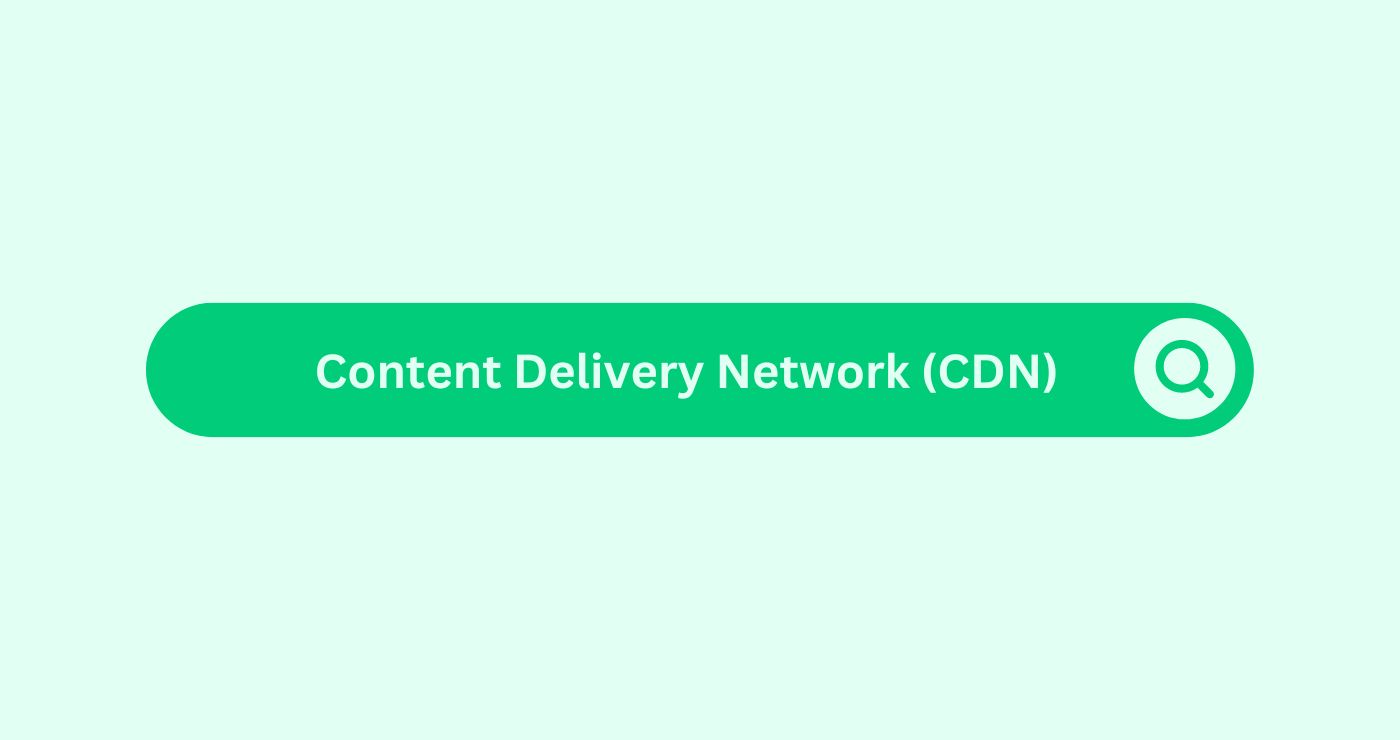Definition
A Content Delivery Network (CDN)Definition A Content Delivery Network (CDN) is a system of d... More is a distributed network of servers strategically positioned across various geographical locations to deliver web content efficiently to users. It accelerates the delivery of web pages, images, videos, and other static or dynamic contentDefinition Dynamic Content refers to web content that change... More by caching copies of the content on edge servers closest to the user’s location.
Example of how you can use Content Delivery Network (CDN)
An example of utilizing a CDN in SEO is deploying it to serve website assets, such as images, CSS files, and JavaScriptDefinition JavaScript is a versatile programming language co... More librariesDefinition Libraries in the SEO space refer to collections o... More. By leveraging a CDN, webmasters can ensure that content is delivered swiftly to users worldwide, reducing latency and improving website performance. For instance, a website serving global audiences can use a CDN to cacheCache Cache refers to a temporary storage mechanism used to ... More and deliver content from edge servers located in different regions, minimizing the distanceDefinition Distance in the context of SEO refers to the phys... More data needs to travel and enhancing user experience.
Key Takeaways
- Improved Website Performance: CDNs optimize website performance by reducing latency and minimizing page load times through content caching and delivery from edge servers.
- Global Content Distribution: CDNs distribute content across multiple edge servers worldwide, ensuring faster delivery to users regardless of their geographic location.
- Load Balancing: CDNs use load balancing algorithms to distribute incoming trafficDefinition In the context of SEO (Search Engine Optimisation... More across multiple servers, preventing serverDefinition A Server in the SEO space refers to a computer sy... More overload and ensuring consistent performance during trafficDefinition In the context of SEO (Search Engine Optimisation... More spikes.
- Enhanced Security: CDNs offer security features such as DDoS protection, SSL encryption, and Web Application FirewallDefinition A firewall is a network security device or softwa... More (WAF) to safeguard websites against cyber threats and unauthorized access.
- SEO Benefits: CDNs indirectly impact SEO by improving website speed, reducing bounce rates, and enhancing user experience, all of which are factors considered by search engine algorithms when ranking websites.
FAQs
What is the purpose of using a CDN in SEO?
CDNs improve website speed and performance by caching and delivering content from edge servers located closer to users, thereby reducing latency and enhancing user experience, which positively impacts SEO rankings.
How does a CDN work to deliver content to users?
CDNs replicate website content across multiple edge servers distributed globally. When a user requests content, the CDN routes the request to the nearest edge serverDefinition A Server in the SEO space refers to a computer sy... More, which delivers the cached content, resulting in faster load times.
Can CDNs improve mobile SEO performance?
Yes, CDNs optimize content delivery to mobile devices, reducing load times and improving mobile user experience, which positively impacts mobile SEO rankings.
Are there any downsides to using a CDN for SEO?
While CDNs offer numerous benefits for SEO, they may introduce additional costs and complexity, especially for smaller websites. Additionally, improper CDN configuration or downtime can negatively impact SEO performance.
How can I measure the impact of a CDN on my website's SEO performance?
You can assess the CDN's impact on SEO performance by monitoring website speed metricsWhat are Metrics in the context of SEO? Metrics in SEO refer... More, such as page load times, bounce rates, and user engagementWhat is engagement in the context of content marketing? Enga... More metricsWhat are Metrics in the context of SEO? Metrics in SEO refer... More using tools like Google PageSpeed Insights, GTmetrix, or WebPageTest.
Does using a CDN affect website security?
CDNs offer security features such as DDoS protection and SSL encryption, which enhance website security. However, misconfiguration or vulnerabilities in the CDN setup can pose security risks to websites.
Can I use a CDN with HTTPS for secure content delivery?
Yes, CDNs support HTTPS encryption, allowing secure delivery of content to users. SSL/TLS certificates can be configured on both the origin serverDefinition A Server in the SEO space refers to a computer sy... More and CDN edge servers to encrypt data transmission.
How does a CDN handle content updates and changes on websites?
CDNs automatically cacheCache Cache refers to a temporary storage mechanism used to ... More and refresh content based on cacheCache Cache refers to a temporary storage mechanism used to ... More expiration settings or cacheCache Cache refers to a temporary storage mechanism used to ... More control directives. Website owners can also manually purge or invalidate cached content to ensure users receive the latest updates.
What factors should I consider when choosing a CDN for my website?
When selecting a CDN, consider factors such as network coverage, performance, reliability, security features, pricing, and ease of integrationDefinition Integration in the SEO space refers to the proces... More with your existing infrastructure and content management systems.
Can CDNs improve website accessibility for users with disabilities?
CDNs indirectly enhance website accessibilityDefinition Accessibility refers to the design and developmen... More by improving load times and performance, benefiting users with disabilities who rely on assistive technologies and slower internet connections.




